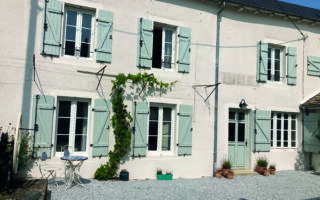Be aware of the hidden costs when buying in France
Buying a property in France can be an exciting venture, whether you’re looking for a charming countryside retreat, a chic Parisian apartment, or a coastal villa. However, the process involves several steps and legal considerations that differ from those in other countries, on top of the often forgotten aspect of foreign exchange risk.
Foreign exchange risk
Foreign exchange is typically an afterthought for many buyers; however, it can be one of the biggest costs associated with buying overseas. From identifying your budget, to placing your deposit, all the way to completion, the foreign exchange market can affect your costs significantly. Fluctuations in exchange rates can alter the costs throughout, making it essential to manage this risk effectively. Using a foreign exchange specialist can provide you with better rates, expert guidance, and tools like forward contracts to lock in favourable rates. This not only helps in budgeting accurately but also ensures a smoother and more cost-effective transaction. By seeking professional advice and planning ahead, you can navigate the FX landscape successfully and enjoy your new property in France without unexpected financial strain.
Here’s a detailed guide to help you navigate the French property market smoothly, while managing foreign exchange risk at each.
Before diving into the property search, it’s crucial to plan for each step:
1. Determine Your Budget: Consider not only the purchase price but also additional costs such as notary fees registration taxes, and potential renovation costs. Make sure to account for potential changes in exchange rates to ensure you have a buffer if the rates move unfavourably. You can also begin to decide whether to lock in a fixed exchange rate or opt for a variable rate. A fixed rate provides certainty, while a variable rate might offer better rates but comes with more risk.
2. Making the Offer: Once you have found the property you like, and you are ready to place your offer, it is essential at this point that you are aware of the exchange rate to make sure your budget is within range. You can work with an exchange specialist like Moneycorp to help plan your budget range.
3. Signing the Compromis de Vente: The Compromis de Vente is the preliminary contract. This contract is legally binding and outlines the terms of the sale. It’s signed in the presence of a notaire, who represents both the buyer and the seller. At this point your purchase is well on the way and you should be thinking about planning your payments and managing your options with your finances.
4. Deposit: After signing the Compromis de Vente you have a 10-day period to withdraw from the sale without a penalty. After this period, a deposit (usually 5-10% of the purchase price) is required.
Using a service based currency specialist is a cost effective and guidance led way to make your payment direct to the notaire. It is at this point you will want to think about your options for your final completion funds.
5. Finalizing the Sale: On the day of completion, you will have pre-arranged for the funds to be deposited into the designated account. Using a foreign exchange specialist with local accounts in France will allow the process of paying a 3rd party a lot smoother. Additionally, if you have used a forward contract, this means you will not have been affected if the rate had moved out of your favour.
6. Post-Purchase Considerations: Be aware of ongoing costs such as property taxes and maintenance fees and ensure you have adequate insurance coverage for your new property. Tools, such as regular payment plans, can ensure you still receive cost efficient rates of exchange on your small but frequent payments.
One tool available to you is a Forward Contract*
Forward contracts allow you to take advantage of a favourable exchange by fixing the exchange rate for a date in the future. Once you agree a rate of exchange, you can lock this in for up to a two-year period. A forward contract also doesn’t require you to make the payment in full, you will only need to provide a 10% deposit to lock in the rate.
This is a popular choice for property buyers as it fixes your budget and removes the risk of fluctuating exchange rates affecting your budget. This is very beneficial for those working towards a budget, however, bear in mind you will not be able to take advantage of an improved rate.
Why Moneycorp?
With a Platinum Trusted Service Award 2020 from independent review site Feefo and 40 years of experience in the industry, FrenchEntrée has been recommending Moneycorp for more than 15 years. During this time they have helped thousands of client planning the best way to pay for their property as well as supporting them afterwards with any further payment from paying bills, mortgages to repatriating UK pension payments for those who have retired to France.
Furthermore, we have worked with the same person at Moneycorp for more than a decade! You might be familiar with her as she often writes for our French Property News magazine. She has 13 years’ experience in foreign exchange, and is a qualified European lawyer with experience in European transactions. Mar will be happy to answer any questions or enquiries to support you through these difficult times
Opening an account is really easy and free of cost. You can register online or over the phone in a couple of minutes and for FrenchEntrée readers there are no transfer fees in any payment.
Share to: Facebook Twitter LinkedIn Email
More in currency, Currency Insights
Leave a reply
Your email address will not be published. Required fields are marked *







